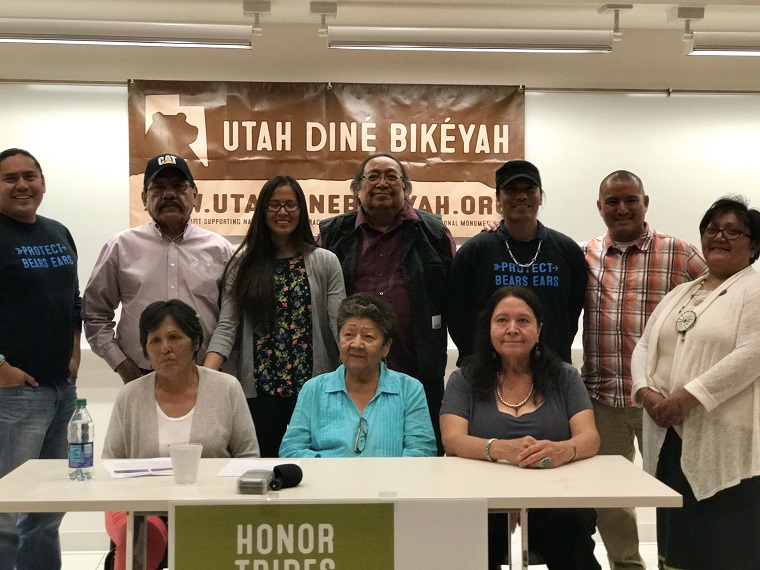Top row from left to right: Eric Descheenie, Albert Holiday, Cynthia Wilson, Jonah Yellowman, Angelo Baca, Kevin M, Regina Lopez-Whiteskunk. Bottom row: Mary Benally, Mary Jane Yazzi, and Evangeline Gray.
They know where it began, but they were uncertain where to start.
With the release of Secretary Zinke's interim report that signals at a shrinking of Bears Ears, an intergenerational panel of Native Americans gathered to present their stories about why preserving Bears Ears is the right decision and shine a light on the realities of life in San Juan County.
The evening broached topics ranging from the Utah delegation's disrespect of women in politics, to climate change, to denial of human rights and prevalent racism that are all nested within the subtext of Bears Ears. However, from the Wonder Women of Bears Ears to Transforming San Juan County toward inclusivity, the evening’s theme, echoed by each speaker, was healing. As Eric Descheenie said, "this endeavor [to protect Bears Ears] is about HEALING, and it's not exclusive to Tribes... and it is at a time when we need it most."
The healing narrative reflected how Bears Ears achieved monument designation in 2016. The road to protection began with mending and healing the relationships among five tribes. The five tribes came together and built trust to secure something bigger than themselves; they came together for their ancestors that came before them and for those who will come after. Regina Lopez-Whiteskunk spoke to the power of healing relationships and how rehabilitating connections creates a bigger window for the ability to see tomorrow. The panelists continued to relay that protecting Bears Ears is safeguarding a library of knowledge, an avenue to subsist, and a pathway to sustaining for the future. The conversation circled back to the powerful opportunity that exists in combining the traditional knowledge of Native Americans with the western way that can offer solutions to the obstacles society currently faces. However, the Native American voice needs a chance to be heard.
The panel closed with a call for help in protecting Bears Ears and a tribal prayer. Wondering what you can do? As Regina Lopez-Whiteskunk said, " What can we do today? You can tell your stories, whatever moments you may have experienced down in the region, don't just tell it in one location, continue telling that story..."
Public comments for national monuments including Bears Ears end on July 10th, 2017. Be sure to make your stories heard.
